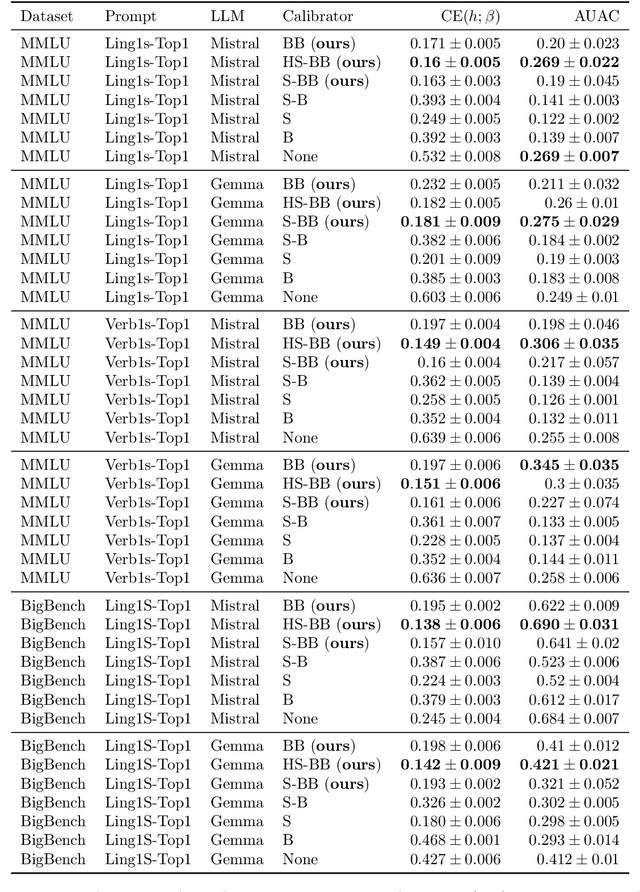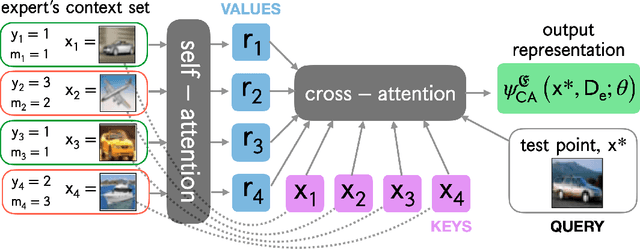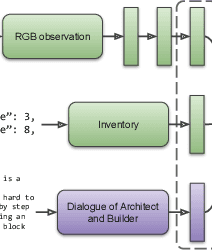Putra Manggala
$β$-calibration of Language Model Confidence Scores for Generative QA
Oct 09, 2024



Abstract:To use generative question-and-answering (QA) systems for decision-making and in any critical application, these systems need to provide well-calibrated confidence scores that reflect the correctness of their answers. Existing calibration methods aim to ensure that the confidence score is on average indicative of the likelihood that the answer is correct. We argue, however, that this standard (average-case) notion of calibration is difficult to interpret for decision-making in generative QA. To address this, we generalize the standard notion of average calibration and introduce $\beta$-calibration, which ensures calibration holds across different question-and-answer groups. We then propose discretized posthoc calibration schemes for achieving $\beta$-calibration.
Learning to Defer to a Population: A Meta-Learning Approach
Mar 05, 2024



Abstract:The learning to defer (L2D) framework allows autonomous systems to be safe and robust by allocating difficult decisions to a human expert. All existing work on L2D assumes that each expert is well-identified, and if any expert were to change, the system should be re-trained. In this work, we alleviate this constraint, formulating an L2D system that can cope with never-before-seen experts at test-time. We accomplish this by using meta-learning, considering both optimization- and model-based variants. Given a small context set to characterize the currently available expert, our framework can quickly adapt its deferral policy. For the model-based approach, we employ an attention mechanism that is able to look for points in the context set that are similar to a given test point, leading to an even more precise assessment of the expert's abilities. In the experiments, we validate our methods on image recognition, traffic sign detection, and skin lesion diagnosis benchmarks.
Interactive Grounded Language Understanding in a Collaborative Environment: IGLU 2021
May 05, 2022


Abstract:Human intelligence has the remarkable ability to quickly adapt to new tasks and environments. Starting from a very young age, humans acquire new skills and learn how to solve new tasks either by imitating the behavior of others or by following provided natural language instructions. To facilitate research in this direction, we propose \emph{IGLU: Interactive Grounded Language Understanding in a Collaborative Environment}. The primary goal of the competition is to approach the problem of how to build interactive agents that learn to solve a task while provided with grounded natural language instructions in a collaborative environment. Understanding the complexity of the challenge, we split it into sub-tasks to make it feasible for participants.
* arXiv admin note: substantial text overlap with arXiv:2110.06536
Aesthetic Features for Personalized Photo Recommendation
Aug 31, 2018


Abstract:Many photography websites such as Flickr, 500px, Unsplash, and Adobe Behance are used by amateur and professional photography enthusiasts. Unlike content-based image search, such users of photography websites are not just looking for photos with certain content, but more generally for photos with a certain photographic "aesthetic". In this context, we explore personalized photo recommendation and propose two aesthetic feature extraction methods based on (i) color space and (ii) deep style transfer embeddings. Using a dataset from 500px, we evaluate how these features can be best leveraged by collaborative filtering methods and show that (ii) provides a significant boost in photo recommendation performance.
 Add to Chrome
Add to Chrome Add to Firefox
Add to Firefox Add to Edge
Add to Edge